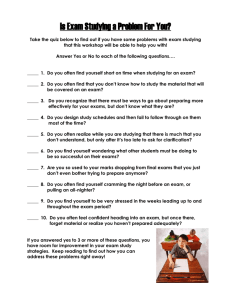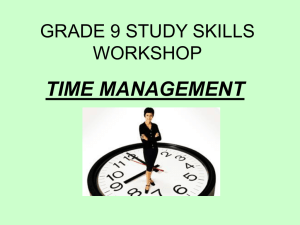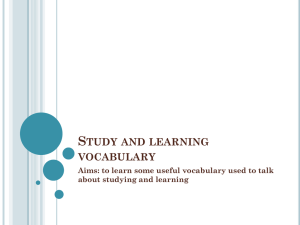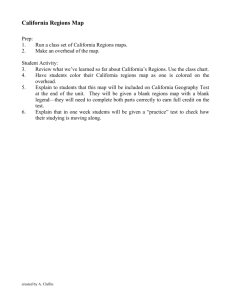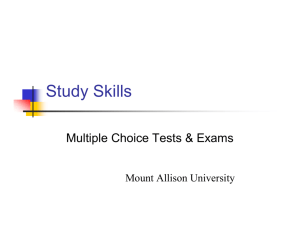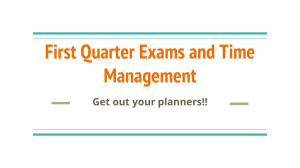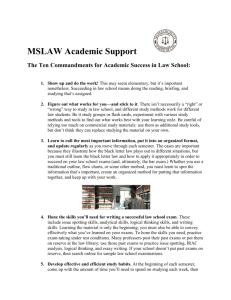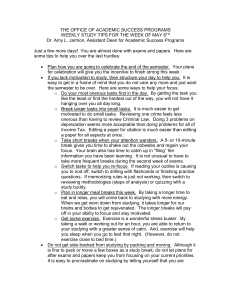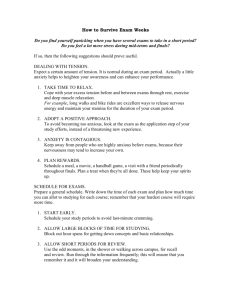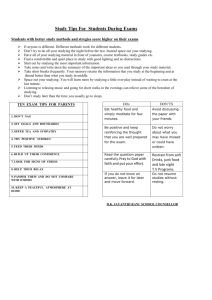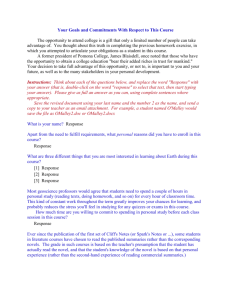Chapter 1 - Cengage Learning
advertisement
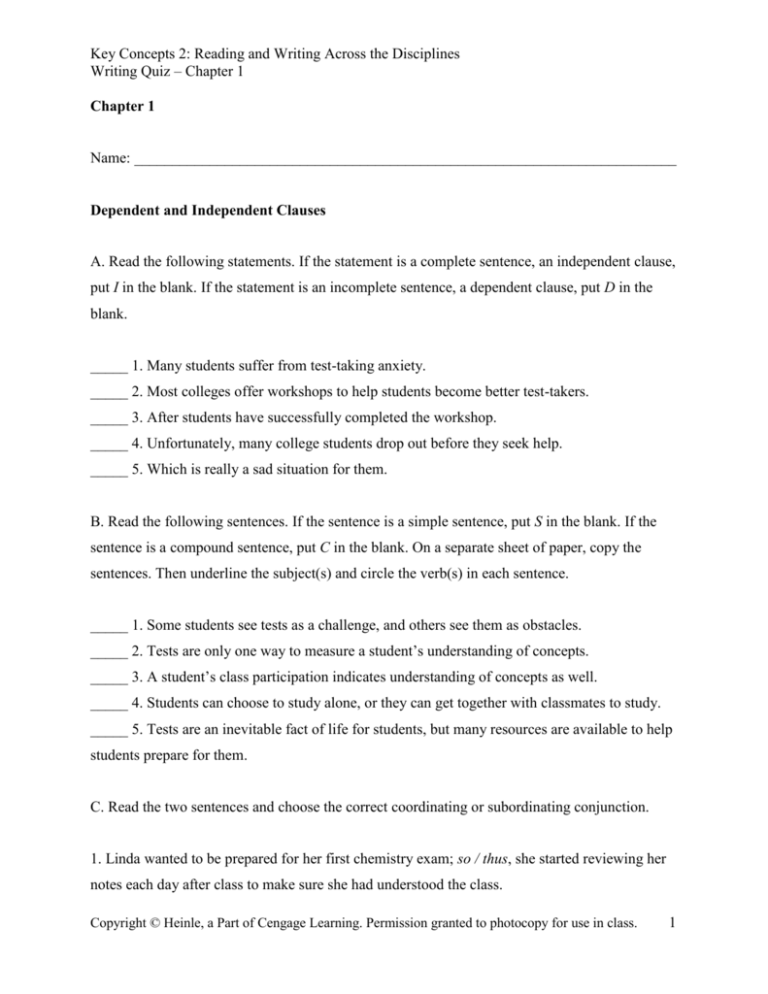
Key Concepts 2: Reading and Writing Across the Disciplines Writing Quiz – Chapter 1 Chapter 1 Name: ________________________________________________________________________ Dependent and Independent Clauses A. Read the following statements. If the statement is a complete sentence, an independent clause, put I in the blank. If the statement is an incomplete sentence, a dependent clause, put D in the blank. _____ 1. Many students suffer from test-taking anxiety. _____ 2. Most colleges offer workshops to help students become better test-takers. _____ 3. After students have successfully completed the workshop. _____ 4. Unfortunately, many college students drop out before they seek help. _____ 5. Which is really a sad situation for them. B. Read the following sentences. If the sentence is a simple sentence, put S in the blank. If the sentence is a compound sentence, put C in the blank. On a separate sheet of paper, copy the sentences. Then underline the subject(s) and circle the verb(s) in each sentence. _____ 1. Some students see tests as a challenge, and others see them as obstacles. _____ 2. Tests are only one way to measure a student’s understanding of concepts. _____ 3. A student’s class participation indicates understanding of concepts as well. _____ 4. Students can choose to study alone, or they can get together with classmates to study. _____ 5. Tests are an inevitable fact of life for students, but many resources are available to help students prepare for them. C. Read the two sentences and choose the correct coordinating or subordinating conjunction. 1. Linda wanted to be prepared for her first chemistry exam; so / thus, she started reviewing her notes each day after class to make sure she had understood the class. Copyright © Heinle, a Part of Cengage Learning. Permission granted to photocopy for use in class. 1 Key Concepts 2: Reading and Writing Across the Disciplines Writing Quiz – Chapter 1 2. Katie was worried about her first chemistry exam, yet / however she didn’t start studying for it until the night before the exam. 3. Josh had never studied for exams in high school, nor / besides was he going to start now that he was in college. 4. Tests can sometimes be a measure of a student’s motivation to succeed; and / on the other hand, they can also be a measure of a student’s ability to memorize facts and statistics. 5. It’s difficult to know what to expect on your first college exam, so / otherwise try to think of it as a learning experience. Respond to Short Answer Questions and Essay Questions D. Respond to two of the following questions. You will have 15 minutes to plan, write, and edit both responses. Write your responses on a separate sheet of paper or on a computer. 1. Define what a study group is and list two benefits of studying in a group. 2. List the steps in studying for an exam. 3. Explain the difference between studying with a group and working with a tutor. E. Respond to one of the following questions. You will have 30 minutes to plan, write, and edit your response. Write your response on a separate sheet of paper or on a computer. 1. Many students prefer to study for exams alone, while others like to form a study group to prepare for exams. Compare and contrast the two methods of studying for exams and include both advantages and disadvantages for each method in your answer. 2. Some students argue that exams are really about memorization and that if you are good at remembering facts, you will do well on the exam. Other students argue that if you really understand the material you have studied, you will not need to memorize any facts. Which of these two views do you agree with? State your view and support it with examples. Copyright © Heinle, a Part of Cengage Learning. Permission granted to photocopy for use in class. 2
